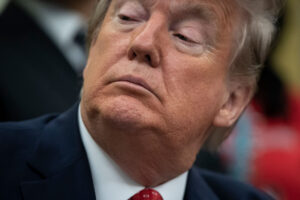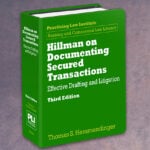Special Counsel Proposes Jan 2 for Trump Election Obstruction Case. Trump Proposes NEVER.
Happy New Year!

(Photo by Drew Angerer/Getty Images)
Special Counsel Jack Smith came out swinging in DC this afternoon with a request that the court set a trial date of January 2, 2024 for Donald Trump’s election interference case. If accepted by the court, this would make the January 6 prosecution the first of Trump’s three pending indictments to go to trial, with the Manhattan DA’s case set for March, and the documents case in Florida scheduled for May.
Trump has repeatedly asked to schedule his criminal cases for NEVER, or at least after the 2024 election. If your play is to get back into the White House, pardon yourself and everyone you ever knew, make Jeff “Co-Conspirator 4” Clark Attorney General, and then lock up all your enemies, a delay is as good as a win.

Survey Results: A Perspective On The Private Markets
To that end, on Tuesday, the former president moved to exclude the 25 days between his initial appearance August 3, 2023 and the first status conference on August 28 from the Speedy Trial Act calculation, citing “the complexity of this matter, including the substantial volume of discovery and novel questions of fact and law.” His lawyers went on to hyperventilate about “the sheer number of witnesses and volume of discovery” in “a case of this magnitude.”
To which the government responded, BRO DO YOU EVEN CRIM PRO?
The motion seeks to exclude time from August 3, 2023, to August 28, 2023, but fails to recognize that all of the time since the defendant’s initial appearance has already been and continues to be excluded under the Act. Similarly, the defendant fails to acknowledge that one of his main bases for seeking to exclude time—that he will be “filing numerous critical motions,” ECF No. 18 at 1—will, in and of itself, toll time. This is because a speedy trial under the Act does not necessarily mean a trial within seventy days; rather, it means a fair and efficient trial within a reasonable period of time, including appropriate exclusions for reasons such as the time required for consideration of motions.
In case Trump’s lawyers were unaware, the government goes on to remind them that the delay they anticipate from “significant constitutional issues, and other novel questions of law and fact” which will necessitate “numerous critical motions” will also be excluded under 18 U.S.C. § 3161(h)(1)(D).
Sponsored

Clio Users: New Ways To Add Value To Your Practice!

Survey Results: A Perspective On The Private Markets

LawPay Pro Offers Upgraded Time And Billing Essentials

LawPay Pro Offers Upgraded Time And Billing Essentials
But more substantively, the special counsel scolded Trump for treating the Speedy Trial Act as if it protects him alone.
“The defendant’s motion fails to recognize that the Act and the Sixth Amendment protect not only the defendant’s rights, but also the public’s strong interest in the efficient administration of justice,” prosecutors wrote in their response to Trump’s motion to exclude time.
“Most importantly, a January 2 trial date would vindicate the public’s strong interest in a speedy trial—an interest guaranteed by the Constitution and federal law in all cases, but of particular significance here, where the defendant, a former president, is charged with conspiring to overturn the legitimate results of the 2020 presidential election, obstruct the certification of the election results, and discount citizens’ legitimate votes,” they added in the proposed scheduling order.
As former federal prosecutor Mitchell Epner, a Member of Rottenberg Lipman Rich, PC, told ATL, “This is a very aggressive schedule, but if the trial court is willing to go along with it there is not an appellate court in the land that will overturn it.”
Prosecutors could not resist tweaking Trump’s lawyer John Lauro, who spends half his time on television, and the other half whining that he doesn’t have time to respond to the government’s pleadings, noting that the defense is far enough along in its trial planning that it’s already discussing its motion strategy with the media:
Sponsored

The Digital Transformation Imperative


Documenting Secured Transactions: A New Guide For Practitioners
FN 1 It appears that defense counsel is already planning which motions the defendant will file. For instance, on CBS’s Face the Nation on August 6, 2023, Mr. Lauro stated, “[W]e’re going to be identifying and litigating a number of motions that we’re going to file on First Amendment grounds, or the fact that President Trump is immune as president from being prosecuted in this way.” He also expressed an intention to pursue a change of venue.
Similarly, the government notes that Trump’s lawyers have “steadfastly refused to accept the discovery that the Government has prepared and organized to facilitate the defense’s review” as the parties dicker over the parameters of a protective order.
That order will be the subject of a hearing tomorrow morning before Judge Tanya Chutkan, who ordered the parties to appear over Trump’s lawyers’ objection that Friday was “lost.”
And meanwhile, the government requested yet another hearing to discuss procedures for the handful of classified documents at issue in this case. In the Southern District of Florida documents case, Trump’s lawyers asked Judge Aileen Cannon to force the government to resurrect the SKIF at Mar-a-Lago and allow him to discuss classified evidence in the comfort of his own home. Which is all well and good in a small town like Fort Pierce. But try that in a “FILTHY AND CRIME RIDDEN EMBARRASSMENT TO OUR NATION, WHERE MURDERS HAVE JUST SHATTERED THE ALL TIME RECORD, OTHER VIOLENT CRIMES HAVE NEVER NEEN WORSE, AND TOURISTS HAVE FLED.”
US v. Trump [Docket via Court Listener]
Liz Dye lives in Baltimore where she writes about law and politics and appears on the Opening Arguments podcast.







